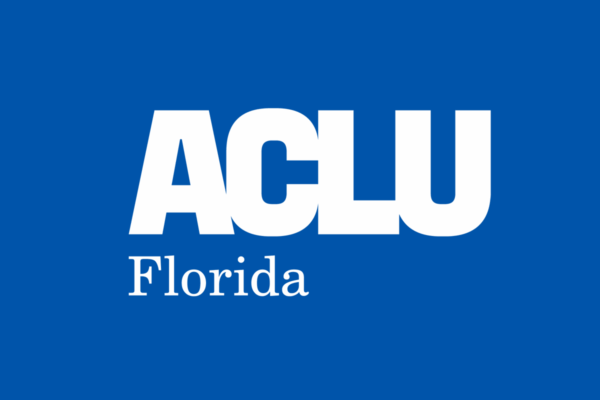TAMPA, FL (June 7, 2019) — More than half the law-enforcement agencies in Hillsborough, Pasco, Polk, Hernando and Sumter counties do not have formal policies in place to safeguard the rights of citizens who unobtrusively record officer behavior, according to a months-long research initiative by the Greater Tampa Chapter of the ACLU Florida.
Under Florida’s wiretap statute, recording someone’s voice without permission can be a third-degree felony punishable by up to five years in prison. While courts have held that citizens have a Constitutional right to record law-enforcement activity, the statute does not expressly articulate that right. In the absence of law-enforcement agencies’ formal policies against arresting citizens who record officers, citizens are left to wonder whether they will be arrested and have to spend their life savings defending the constitutionality of their actions in court.
The Chapter reached out to 24 law-enforcement agencies in the five-county area. Five already had formal policies in place. Eleven had no formal policy at all. Three more (Center Hill PD, Kissimmee PD, and Tampa International Airport PD) adopted formal policies after the ACLU’s inquiry and provided it. Three more (Dade City, Auburndale, and Winter Haven) are in the process of developing a policy but have not yet completed the process. The jurisdiction-by-jurisdiction results are set forth in the report.
The Greater Tampa Chapter believes it is important that law-enforcement agencies have policies that reflect constitutional reality.
"Today, most people carry around recording devices in their front pockets,” said James Michael Shaw, Jr., chair of the Greater Tampa Chapter’s Legal Panel. “The recordings they’ve made of law-enforcement officers have had such a profound effect on the public’s confidence in the accuracy of police reporting that the First Amendment value of these recordings is no longer up for debate,” he said. “They have extraordinary public value as a check on the otherwise-presumed accuracy of law enforcement’s reporting to the public. Time and again – from Rodney King in 1991 to Laquan McDonald in 2014 –recordings have proven that the official narrative was incomplete or even fabricated. The First Amendment protects the public’s right to make these recordings without fear of being arrested and charged with a felony.”
Persons who have been arrested, or threatened with arrest, for making recordings of law-enforcement officers should contact the ACLU of Florida and submit a complaint.
ABOUT ACLU OF FLORIDA AND ITS GREATER TAMPA CHAPTER
ACLU of Florida, headquartered in Miami, is the state affiliate of the American Civil Liberties Union. The nonpartisan, nonprofit organization works to protect and advance the civil liberties of all Floridians. The Greater Tampa Chapter of ACLU of Florida covers Hillsborough, Pasco, Polk, Hernando and Sumter counties.
ACLU of Florida: https://www.aclufl.org
Greater Tampa Chapter: https://www.aclufl.org/en/chapters/greater-tampa-chapter
Stay Informed
Sign up to be the first to hear about how to take action.
By completing this form, I agree to receive occasional emails per the terms of the ACLU’s privacy statement.
By completing this form, I agree to receive occasional emails per the terms of the ACLU’s privacy statement.

